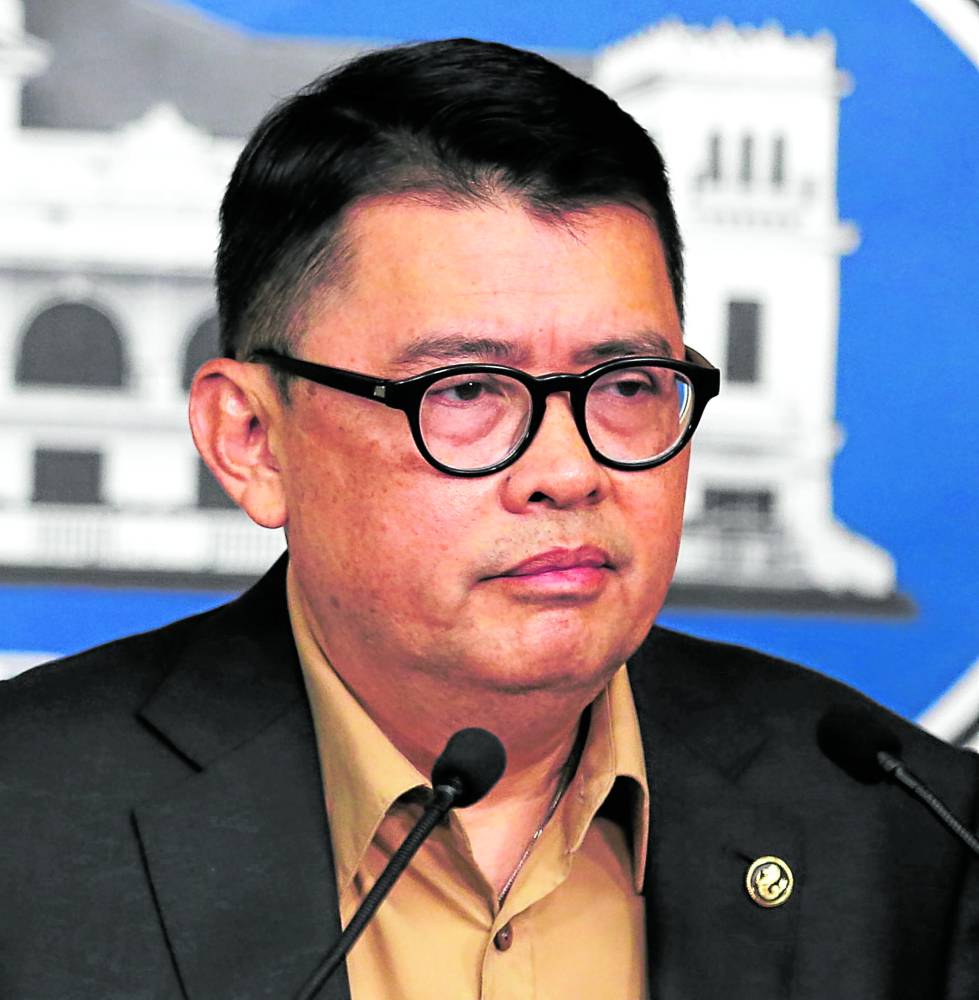
Presidential Adviser for Entrepreneurship and Go Negosyo founder Joey Concepcion. INQUIRER FILE PHOTO
With the Philippines now placed by the US Centers for Disease Control and Prevention (CDC) under the lowest travel risk classification, the government should lift the state of public health emergency that has been in effect since the early stages of the pandemic.
This was the suggestion of Presidential Adviser for Entrepreneurship Joey Concepcion, saying that ending the state of emergency would promote confidence among the population and also lift the alert levels that have been the basis of mobility and business capacity restrictions.
According to the CDC, the Philippines is now under level 1 travel risk classification, the lowest bracket for countries that have 49 or fewer new cases per 100,000 residents over the last 28 days.
Informed decisions
“It would be just the right time as all over the world economies are starting to resume normal activity,” said Concepcion, the businessman-founder of the Go Negosyo movement. Even countries like Australia, Singapore, Canada, the UK, Spain and Italy—which are on CDC’s level 3, or high-risk category—are not under a state of public health emergency, he noted.
“We should focus on job creation, opening up all areas, resuming in-person classes, and encouraging people to go back to work,” he stressed.
For Concepcion, Filipinos can already make informed decisions on how to keep themselves safe from Covid-19 and avoid infecting others. He cited an OCTA Research study conducted in March which found that a majority of Filipinos would continue to wear face masks even after the respiratory disease had been brought under control, with a third of the respondents even considering wearing masks for a year longer.
“I think wearing of face masks outdoors should now be optional, but it should remain mandatory in indoor situations especially in public transport,” he said.
OCTA Research fellow Fr. Nicanor Austriaco agreed with Concepcion, saying an increasing number of studies are showing that “wearing an N95 mask after you are vaccinated and boosted will protect you from getting COVID-19 even if everyone else around you is not wearing a mask. This should reassure the Filipino people that they can protect themselves even as our society begins to relax the outdoor and even indoor mask wearing requirement as other countries have done,” he said.
Even without lockdowns
Public health advocate Dr. Tony Leachon also agreed, saying, “People are now aware of how to keep themselves safe, but we must continue reminding them.”
“We should strictly implement health protocols without the lockdowns,” said Vaccine Expert Panel member and infectious disease expert Dr. Rontgene Solante. He also observed that despite the slight rise in Covid-19 cases, most of them are mild and do not require hospitalization.
Like typhoon alerts
Solante and Dr. Maricar Limpin, president of the Philippine College of Physicians, believe that as the country moves forward from the pandemic, it should take steps to improve its health infrastructure, specifically in strengthening intervention on emerging and reemerging infections. “We need to improve our capacity and this will mean putting sufficient investment in it,” Limpin said.
Other policy changes have also signaled that the country is slowly easing out of restrictions. Incoming tourists now no longer need a Covid-19 test as long as they have at least one booster vaccination.
“Because this will not be our final pandemic, we should work on refining our public health warning system,” Concepcion said.
He suggested an alert level system that is based on health care and ICU bed utilization rates, rather than on infection rates. Concepcion earlier proposed a public health warning system that would be similar to typhoon alert warning systems.
Vaccinations and boosters should continue, and would even be better if second boosters can be expanded to include those 50 years or older, he added.

